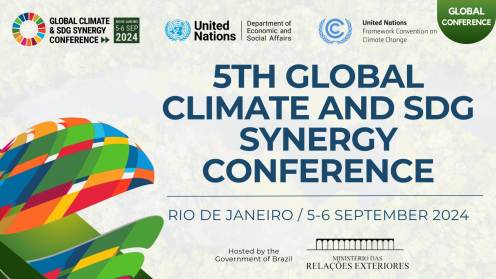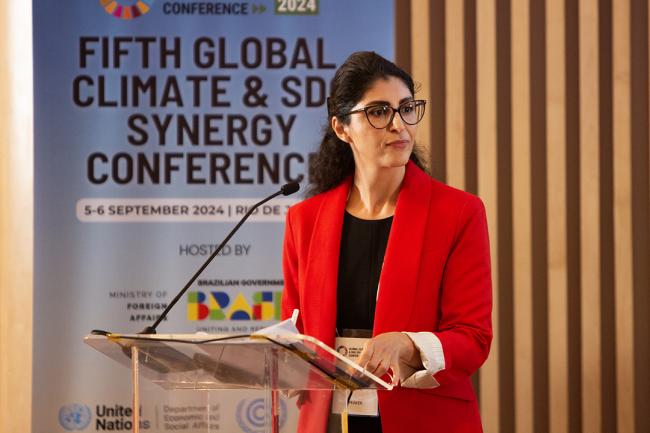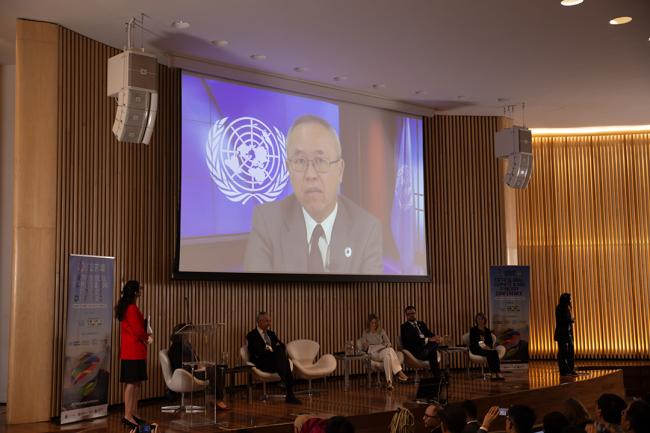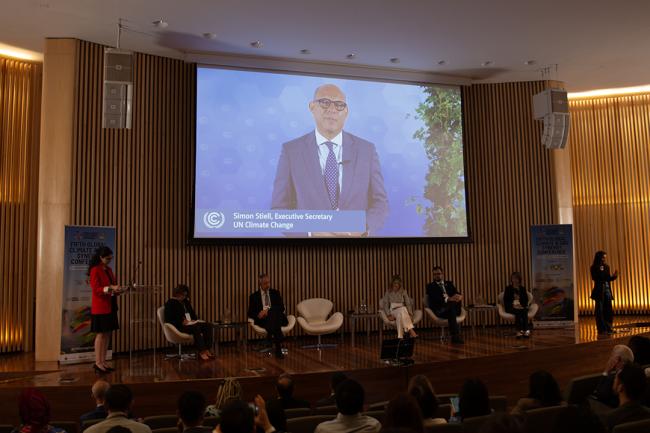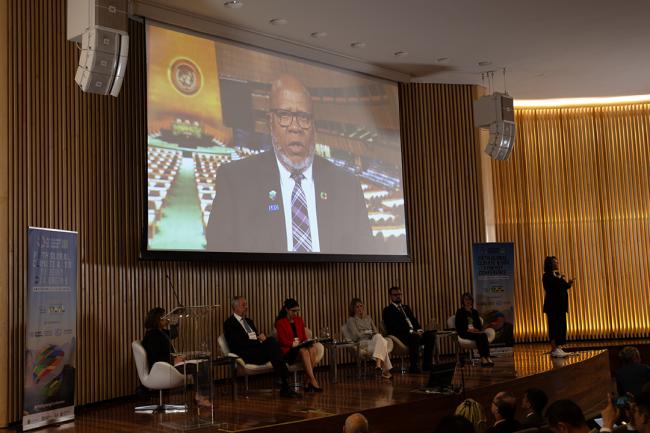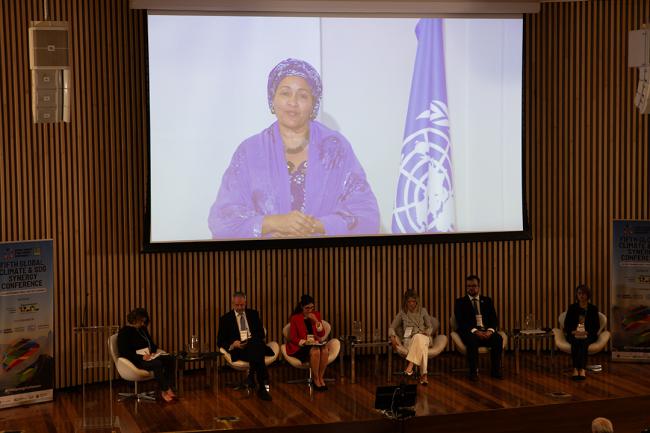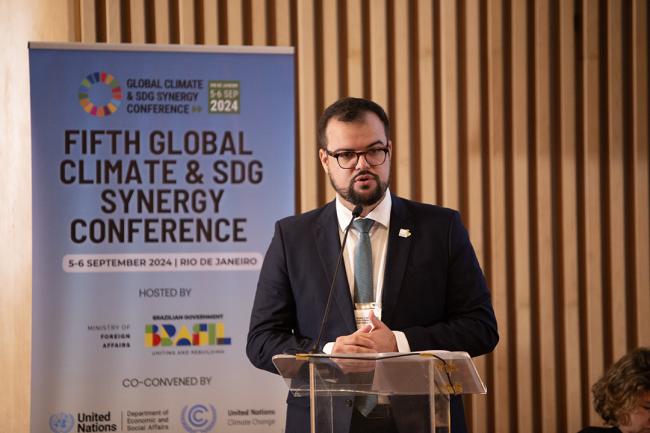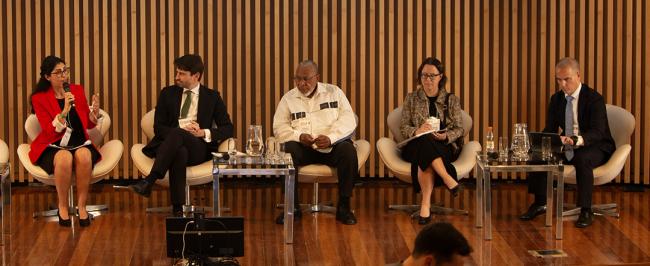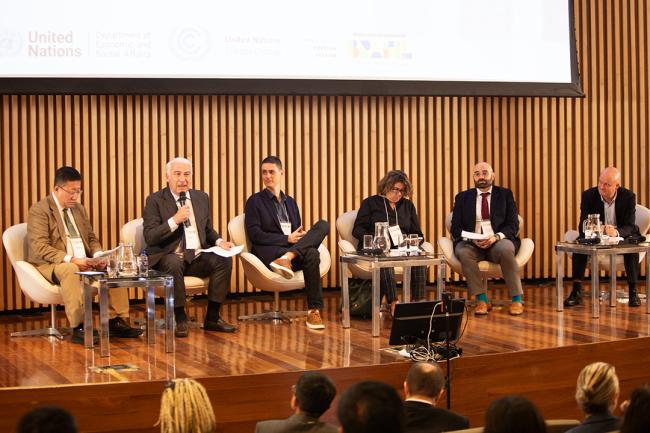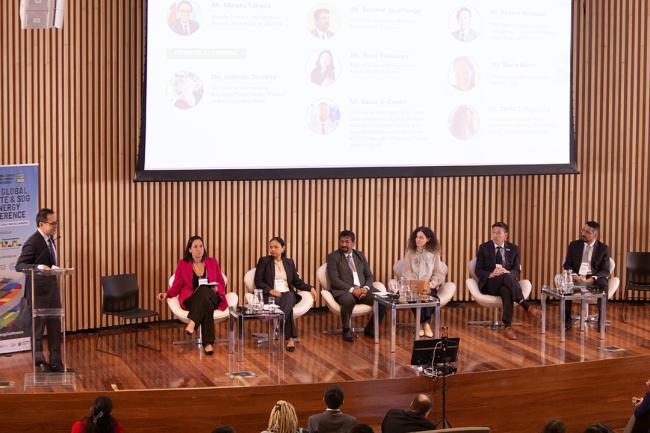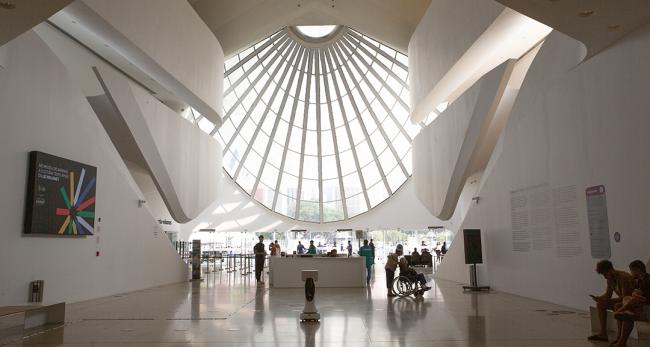Through high-level remarks, delivered both in-person and via video message, the first day of the 5th Global Conference on Climate and SDG Synergies opened. Speakers highlighted the strong synergies between climate change and the Paris Agreement, and the Sustainable Development Goals (SDGs). Recognizing the rich history that Rio de Janeiro represents for the sustainable development agenda and establishment of the three Rio Conventions more than thirty years ago, messages acknowledged the optimism and recognition shown decades ago regarding the interlinkages between environmental challenges and global inequities. Despite this holistic understanding since 1992, speakers conceded that the majority of SDGs are not on track to be met by 2030. However, they also maintained that all is not lost as political will and global momentum are growing with a view to accelerate actions towards a sustainable future.
Ambassador André Aranha Corrêa do Lago, Secretary for Climate, Energy and the Environment, Ministry of Foreign Affairs, Brazil, described how Brazil, holding the current G20 Presidency and United Nations Framework Convention on Climate Change (UNFCCC) COP 30 Presidency, is launching several initiatives looking at the interlinkage of climate with issues such as poverty and hunger.
Li Junha, Under-Secretary for Economic and Social Affairs, UN Department of Economic and Social Affairs (UN DESA), described, in his video message, the present outlook on climate and the SDGs as emissions continue to rise and the world faces its hottest record temperatures to date.
Simon Stiell, Executive Secretary, UNFCCC, noted in his video message, that in order to ensure no one is left behind, a new finance deal between developed and developing countries will need to be devised both inside and outside the UNFCCC process.
Amina Mohammed, UN Deputy Secretary-General, drew attention to the upcoming Summit of the Future and UNFCCC COP29 as key forums where a restructuring of the financial system and effective National Determined Contribution (NDC) updates are crucial.
Other high-level speakers emphasized how integrated planning between ministries, different levels of government, diverse stakeholders, and the inclusion of women, Indigenous Peoples, and the most vulnerable are paramount for tackling the climate crisis and achieving the SDGs. Speakers underlined the need to focus on what science is telling us and the role forests and the Ocean play in climate change and the SDGs. Youth speakers drew attention to the impacts of the climate crisis on youth and its continued advocacy work.
In the afternoon, a scene-setting conversation, two roundtables, and a thematic session took place. These discussions focused on: the global state of progress on climate change and SDG synergies; how to bridge the financing divide; delivering co-benefits for climate leaving no one behind; and regenerating nature with a bioeconomy approach. Speakers provided examples of how progress can be achieved in the areas of their discussion by broadening participation to include local populations, youth, biologists, effective economic valuations, and a rapid scale-up of resources.
The first day concluded with the side event “Climate Action Perspectives for the Global Alliance against Hunger and Poverty,” organized by the Government of Brazil with the Institute for Climate and Society and the Ibirapitanga Institute.
To receive free coverage of global environmental events delivered to your inbox, subscribe to the ENB Update newsletter.
All ENB photos are free to use with attribution. For the 5th Global Conference on Climate & SDG Synergies, please use: Photo by IISD/ENB | Angeles Estrada Vigil
Conference Opening and High-level Segment: Building a Just World and a Sustainable Planet
Leaders dialogue

Kamal Kishore, Special Representative of the Secretary-General for Disaster Risk Reduction (DRR) and Head of the UN Office for DRR (UNDRR)

Anacláudia Marinheiro Centeno Rossbach, Executive Director, United Nations Human Settlements Programme (UN-Habitat)
